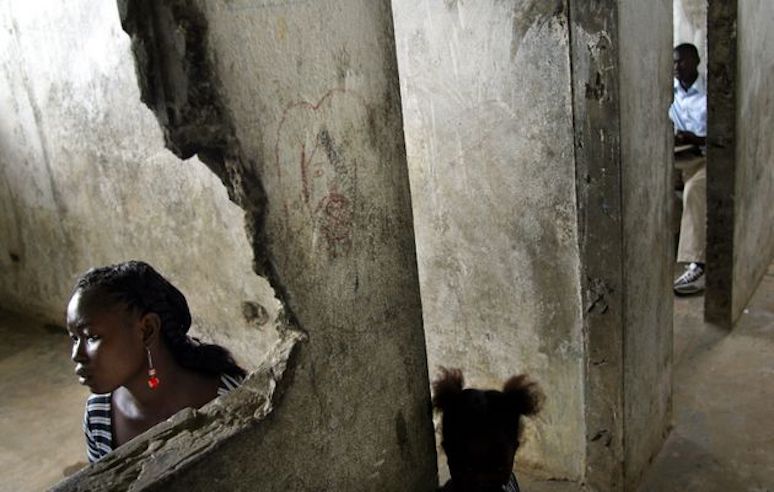It blows my mind how every time stakeholders in the health sector of society are given the chance to design programs to reduce maternal mortality, a huge subset of women are discriminated against because access to safe abortion is not provided for them. Liberia is one of the countries with the worst maternal mortality in the world. Despite the fact that the country has taken some significant steps towards reducing maternal deaths by making small gains in various aspects that improve maternal mortality, it has not considered this option. Liberia has, although not remotely close to what’s needed,:
- increased the number of skilled birth attendants, and
- increased the number of healthcare facilities that are capable of rendering basic emergency obstetric care (there are a few that provide comprehensive care).
Sadly, however, these little improvements do not stop us from uprightly denying a large subset of women access to the very improvements our health care sector is making. Basically the Liberian society is saying:
“Hey, look! We now have some very trained and skilled people, we have improved some of our infrastructure and we can handle some very complicated cases now. BUT, we will not allow a certain group of women to access these life saving improvements. If you decide to get an abortion, we are sorry, you cannot have access to the people that have the skills to do so.”
What this does is compel women to seek abortion care from corner-side folks in suspicious alley ways, under unsafe conditions, that leave them with holes in their wombs and intestines (perforated uterus and bowel), severe life-threatening infections, and very often severe bleeding from incomplete abortions with retained products, commonly known as “afterbirth”. The burden of curing them still falls on the very health care system that first rejected them in the name of “strict abortion laws” and “pro life.” Although we deny women access to safe abortion in Liberia, we provide post-abortion care for all the life threatening situations that follow the unsafe abortions we could have prevented in the first place. This is counterintuitive at best.
I argue that the high maternal mortality rate in Liberia due to unsafe abortions is because we, as a country, do not provide our women the access they need to a safe abortion. A week in May 2019 alone, one of the attending Doctors had to manage 5 cases deal with the aftermath of unsafe abortions, and one of them didn’t survive even after 2 surgical attempts to improve her chances.
I feel frustrated, angry and disgusted by the level of hypocrisy we display as a nation, when it comes to the issue of abortion. What I think should be a taboo is “denying couples access to safe abortion options,” if you ask me. Yes! And I say “couples” because it is two people that are getting the abortion. We as men somehow, in our patriarchally twisted mindsets, conveniently manage to detach ourselves from the process entirely as if we weren’t involved in the action(s) that caused the conception in the first place. Men ignore the fact that we ought to be involved in the decision making process that may or may not include abortion. We think a man’s role should be to support the woman in whatever decision she makes while respectfully communicating his opinion because ultimately, it is never a man’s place to tell a woman what to do with her body.
The hypocrisy also extends to how we allow religious ideologies to strategically translate into secular discourses like medicine, human rights and ethics where and whenever it suits our convenience. Statistics would show that 1 out of every 3 persons you know has had an abortion or has a close/best friend who has had an abortion. Yet, we demonize abortion as if it is some farfetched concept completely out of the scope of our understanding. Maybe even 2 out of every 4 lawmakers or religious figures you know have, at one point or the other, had or paid for an abortion for their wife, girlfriend, daugther or niece.
This is in no way meant to say that any one person is solely responsible for people not having access to safe abortions, but you as a reader could be a driver of the conversation around this topic. Have you ever wondered why abortion is such a taboo topic when it is so common in our schools and communities? A study done in 2013 by the Clinton Health Access Initiative and key officials of the Ministry of Health surveyed over 3000 Liberian women and girls between the ages 15-49. The survey, found that 32% of these women have had an abortion. This is clear evidence of how common the practice is. With the restrictive laws we have in Liberia, it is fair to assume that about all these abortions were unsafe.
The devastating complications that follow are real and they happen to real people, but our society seems to be far removed from it. It’s the 39 year old mother of 3 who is struggling to make ends meet against challenges far out of her control but now finds herself pregnant. She and her husband decide to get an abortion, but her options for a safe procedure are next to none, because abortion is illegal in Liberia. So they opt for the guy in the back of a drug store using god-knows-what kinds of instruments. Shortly after, they have to go to the hospital with a ruptured uterus and a perforated bowel. She may end up losing her life. Her 3 children would now be left without a mother, only because we have folded our hands and allowed access to safe abortion to be illegal. We all have heard stories of young women reverting to methods like using knives, sharp sticks and native herbs to induce abortions that land them in the hospital with serious, life threatening complications.
Sometimes, one would wish it was possible to bring our health policymakers to spend a day in the Emergency Room, to get them to really see the direct impact of the decisions they sit behind desks in air-conditioned rooms to make, because nothing prepares a person to watch someone die, especially from a preventable cause. This is something most medical professionals have to deal with far too often. Almost every abortion related death and disability could be prevented through comprehensive sexual education, the use of effective contraception, the provision of safe, legal induced abortion and/or timely care for complications.
Creating access to abortion is not rocket science, the only thing missing at this point is the will to provide the best options for the very people we call aunties, sisters or mothers. You don’t have to not be pro-life to want everyone to have access to services our facilitiies have, despite all the many challenges. To put things into perspective, out of every 100,000 pregnant women about 1,072 women lose their lives due to pregnancy related causes in Liberia. Out of those 1,072 women who would die of pregnancy related causes, 139 of them die because of unsafe abortion practices.
I think, despite all our different perceptions and inclinations about abortion, what is needed now more than ever is to create safe spaces across all spheres of society where these conversations can be had void of religious and moral sentiments. When everyone, in community, national and governmental levels, are intentional about discussing and understanding the naunces of abortion, we all will not be shy to tackle these challenges and save the lives of our mothers, sisters and aunties around us. I promise you, by the time you are able to comfortably answer this question without hesitation, “When was the last time you talked about abortion?,” we will be able to see that access to abortion is not as bad as it sounds. People usually fear what they don’t know and most times, that fear translates to hate. Let’s inform ourselves to know better and be better humans.
Dr. Heounohu R. Hessou, Atty. Joshua S. Kulah & Dr. Richard J. Doe
(Despite the 3 authors, this piece is written in one voice)

